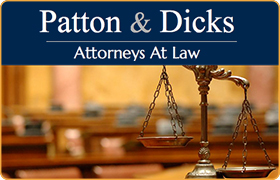Mulberry Criminal Lawyer, Florida
Sponsored Law Firm
-
 x
x

Click For More Info:
-
Patton & Dicks
465 East Main Street Bartow, FL 33830» view mapCriminal Defense, Criminal Appeals Real Attorneys Fighting For Real People
As Criminal and DUI Attorneys, we defend peoples rights in criminal courts. Find out how our services can help your situation.
863-225-3550
Michael Neal Dicks
✓ VERIFIEDCriminal, Divorce & Family Law, Accident & Injury
Michael was born and raised in Florida. He spent much of his youth working in orange groves and watermelon fields in Central Florida. Michael knows th... (more)
Lynn Willyerd Rhodes
Federal Appellate Practice, Family Law, Criminal, Elder Law
Status: In Good Standing
Keith Aaron Peterson
Immigration, Divorce & Family Law, Criminal
Status: In Good Standing Licensed: 25 Years
Anthony Wayne Surber
Civil Rights, Adoption, Administrative Law, Federal Appellate Practice, Criminal
Status: In Good Standing Licensed: 24 Years
Thomas Anthony McDonald
Employee Rights, Child Custody, Criminal, Business
Status: In Good Standing Licensed: 56 Years

 About MeMore Info
About MeMore Info PracticesPatton & Dicks
PracticesPatton & Dicks

